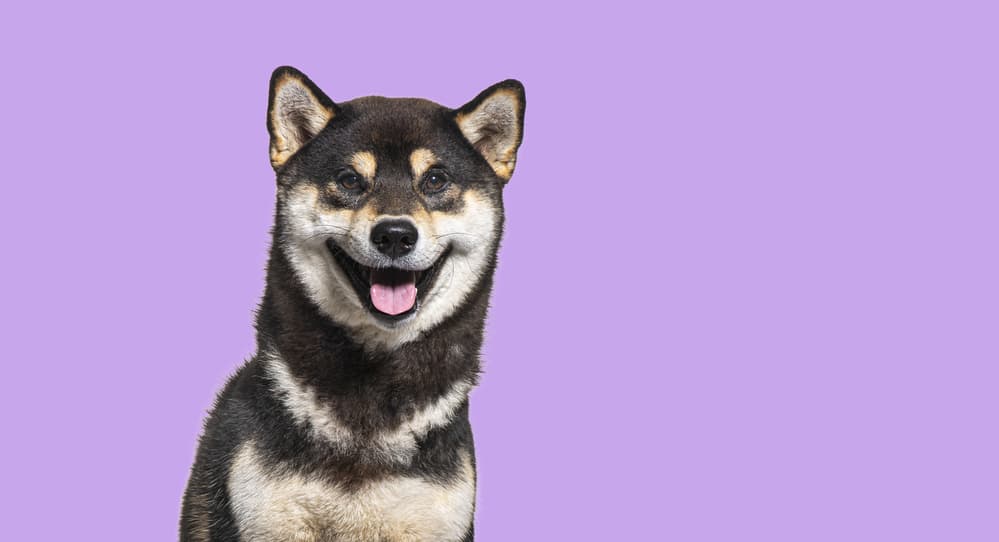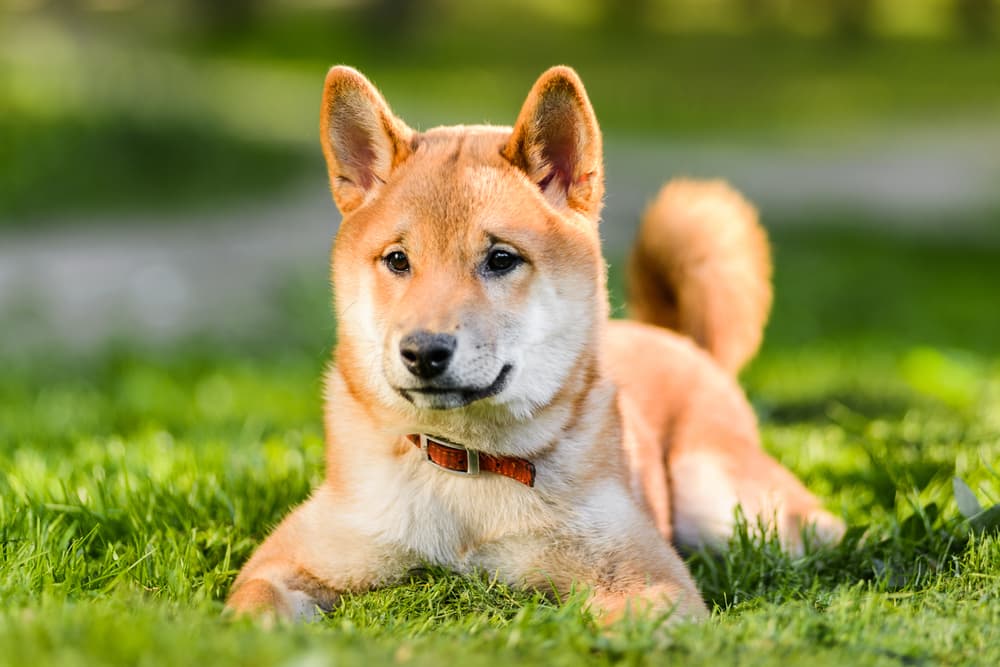Pusuke, a Shiba mix from Tochigi prefecture, owned by Yumiko Shinohara, held the Guinness World Record as Longest Living Dog in 2010. He lived for an impressive 26 years and eight months, which is almost double the average life-span of a Shiba Inu. It’s about 125 in “human years,” according to his owner.

Shiba Inu
The Japanese use three words to describe their national dog, the Shiba Inu: “Kaani-i” for its feisty boldness, “soboku” for its alertness, and “ryosei” for its gentle nature. These words certainly do sum up the personality of this intelligent, strong-willed, and territorial breed.
Country of Origin
Japan
Breed Group
Hunting dogs (Spitz)
Height
Male 13-16 In
Female 12-13 In
Weight
Male 17-23 Ib
Female 16-17 Ib
Life Span
13-16 years
In a Nutshell
This little athletic warrior was once a hunting dog but is now the most popular companion dog in Japan. The Shiba Inu possesses a strong will, territorial tendencies, and an uncanny ability to escape from gardens. This makes the breed better suited to experienced rather than novice dog owners. But, once trained and socialized, a Shiba Inu becomes a loyal family member and a great guard dog.
Life With a Shiba Inu
Looks & Personality

The main feature of the Shiba Inu is its thick double coat. A soft and dense undercoat is covered with a straighter coarser topcoat in black and tan, cream, red, or red sesame. While a weekly brushing is needed to keep the coat in tip-top condition, the Shiba Inu is a very clean breed and often self-grooms in a similar way to cats.
While Shiba Inus are cute and compact, and have seen their cultural cachet rise thanks to their role in Internet culture, they can be a demanding breed—and any prospective owner should prepare for the challenge of caring for one. They’re not the prototypical “family dog” one might imagine, constantly playful and craving human affection. While every individual is different, some Shibas might not always be in the mood for belly rubs. In fact, Shiba Inu are said to have a personality more like a typical cat and tend to be more independent, aloof and stubborn at times.
Another facet of their personality is inquisitiveness, they’ll have their nose and paws into anything around the house. It’s best to keep precious items and soft toys out of reach so that they’re not chewed to pieces. They also have a tendency to yodel, purr, and scream rather than bark. As with other Spitz breeds, the Shiba Inu is not very good at sharing their toys and has a tendency to chase smaller furry animals such as the family cat or squirrels in the park.
A tip from a vet
A tip from a trainer
What about your Shiba Inu?
Did You Know

Shiba Inus are known for their vocals which range from a cat-like purr when stroked to a high-pitched yodel or even scream when excited or stressed.

“Shiba” translates from the Japanese as “brushwood”, the terrain through which they traditionally hunted. “Inu” simply means “dog”.

The Shiba Inu population had started to decline during World War II, and the breed was almost rendered extinct after the war due to a nationwide food shortage and an epidemic of canine distemper.
In The News
Famous Shiba Inu Owners
The History Behind the Breed
A close relative of the larger Akita breed, the Shiba Inu originated in Japan and is believed to have been around for over 2,000 years. It was bred as a hunting dog and used by hunters to flush out game birds. An iconic breed in Japan, the Shiba Inu was given National Monument of Japan status in 1937 but thanks to WWII bombing raids and post-war distemper, the breed nearly died out. In the late 1940s, Shiba Inus were located in remote areas and brought to Tokyo where they were used to kickstart a breeding program. A certain amount of interbreeding was used to create the modern Shiba Inu. The first Shiba Inu to arrive in the States was brought by a returning serviceman and his family in 1954 but there is little American documentation about the breed until the 1970s. It wasn’t until 1979 that the first litter of Shiba Inus was born in the States and the breed was finally recognized by the American Kennel Club in 1993.
If a Shiba Inu Could Talk…
A Quick Anatomy Lesson


Shiba Inus are a healthy dog breed that can lead long lives. Still, the breed can be prone to certain health issues, and informed owners can improve their Shibas’ lives by being on the lookout for them.
Common Health Problems
What about your Shiba Inu?
















